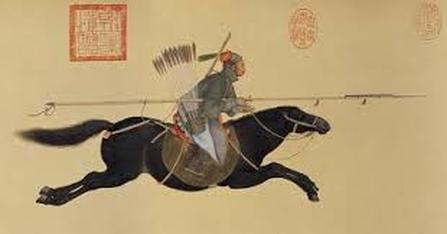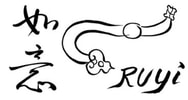 Year Of The Wood Horse 甲午年 Jia Wu Nian January 31, 2014 Why is Chinese New Year on a different date in the western calendar? This is often asked and not always answered satisfactorily even by Chinese folks. As a child growing up in China, this special event has been a tradition, and a seasonal celebration. This is the time for going home to be with family, pay respect to ancestors, to relax, eat good food, wear new clothes and be ready for the new year. Myths and folklores about Chinese New Year have been translated by western scholars in various formats. Images of Chinese New Year celebrations are readily available these days on the internet.
For me, a native Chinese transplanted to the United States for half a life time, the Chinese New Year has become much more meaningful than just a date on the calendar. The Chinese consider this special date the most important seasonal occurance, which is called "Jie Qi", 節氣, "The Seasonal Life Force". From as early as the Xia Dynasty (2205-1784 B.C.), the first spring moon cycle was adopted as the equivelanet of the western month of January. For thousands of years, Chinese New Year usually occures on the second new moon after the winter solstice by the western calendar. From ancient agricultural tribal traditions, this is the time to celebrate the end of a hard working year when nature and living creatures felt the first signs of awakening from the long winter sleep. It is the season of new birth which would be the most important celebration of survival in a primordial and tribal tradition in all regions where mankind had lived. Today, most people know about the Lion and Dragon Dances with firecrackers in China Towns all over the world. Most people even can say "gong he fa choy" in Cantonese dialect, which means: "contratulations on becoming rich" instead of what is assumed to be "happy new year". Here is the difference of a commercial promotion in comparison to what is going on in a Chinese home during new year's. Even though most Chinese families are living a modern and somewhat westernized life style these days; but during Chinese New Year, a large percentage of folks still perform ancestral worship on new year's eve. This is a traditional ritual to show respect and to recount our year's work and any accomplishments as an offer to thank our ancestors for what we have today. After the Ritual, the family can relax and enjoy a feast, play games and wait until midnight when firecrackers are lit and one can say with a happy sigh: "New Year Is Here"!
1 Comment
|
AuthorPearl Weng Liang Huang, Founder of
|

 RSS Feed
RSS Feed